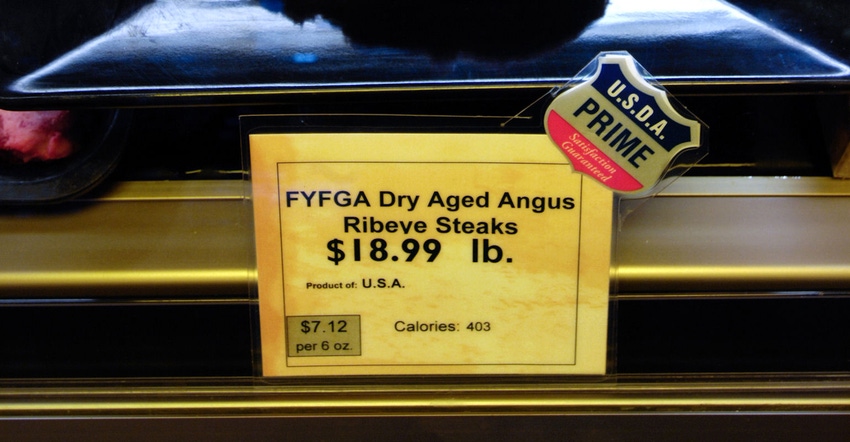USDA won't require COVID-19 labels from affected facilities
In response to Physicians Committee for Responsible Medicine, USDA says label with COVID-19 testing and infection rates could be misleading.

The U.S. Department of Agriculture Food Safety & Inspection Service (FSIS) states that it does not have the authority to require facilities to report on the health information of their workers.
The Physicians Committee for Responsible Medicine’s filed a petition with USDA urging the agency to require meat and poultry processing plants to publish information about COVID-19 testing and infection rates at their facilities and to include a warning on their product labels that workers in the processing facilities "have been sickened or killed by the SARS-CoV-2 virus, and this product has not been certified virus-free.”
The petition requests that FSIS take certain actions related to the COVID-19 pandemic. Specifically, the petition requests that FSIS:
Require that all meat and poultry processing establishments test their products for the presence of SARS-CoV-2 and make their findings available to the public;
Require all meat and poultry processing establishments report to local public health authorities, on a weekly basis, the number of workers and the number of their family members with presumptive or confirmed SARS-CoV-2 infections and those dying of COVID-19;
Post the number of FSIS inspectors with presumptive or confirmed SARSCoV-2 infections and those dying of COVID- 19 to the USDA website on a weekly basis;
Amend labeling regulations to require that the safe handling statement on the labeling of all meat and poultry products bear the following statement: “Warning: Workers in the U.S. meat and poultry processing facilitates have been sickened or killed by the SARS-CoV-2 virus, and this product has not been certified virus-free,” and
Publish and distribute notices to all major retail establishments bearing the warning statement requested above to be placed at checkout counters.
The agency’s response notes that the proposed warning statement “is misleading because it inaccurately implies that meat and poultry products that have not been ‘certified as virus-free’ may transmit COVID-19 or are somehow unsafe."
USDA added that public health and food safety experts have found no evidence to support transmission of COVID-19 associated with meat or poultry products. “Thus, we are denying your request to amend the safe handling labeling regulations because we believe the requested warning statement would cause meat and poultry products to be misbranded,” the agency added.
In its response, USDA also stated that, according to the Centers for Disease Control & Prevention, SARS-CoV-2 and other coronaviruses are generally thought to be spread from person to person through respiratory droplets. Public health and food safety experts have found no evidence to support transmission of COVID-19 associated with meat or poultry products or any other food. Although it may be possible that a person can contract COVID-19 by touching a surface or object that has the virus on it and then touching their own mouth, nose or possibly eyes, this is not thought to be the main way the virus is spread. Therefore, based on information about the SARS-CoV-2 thus far, it seems unlikely that COVID-19 can be transmitted through food, the agency said.
About the Author(s)
You May Also Like




.png?width=300&auto=webp&quality=80&disable=upscale)
